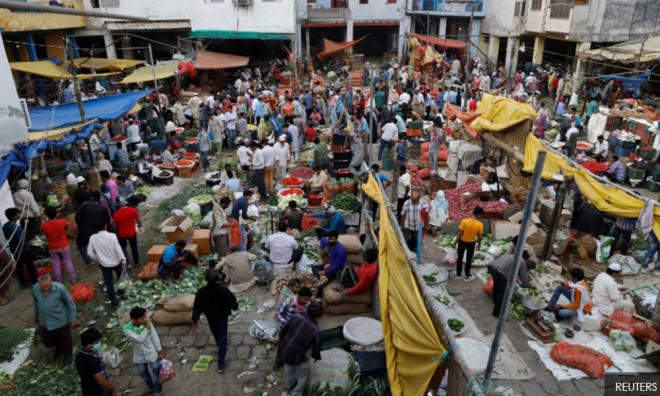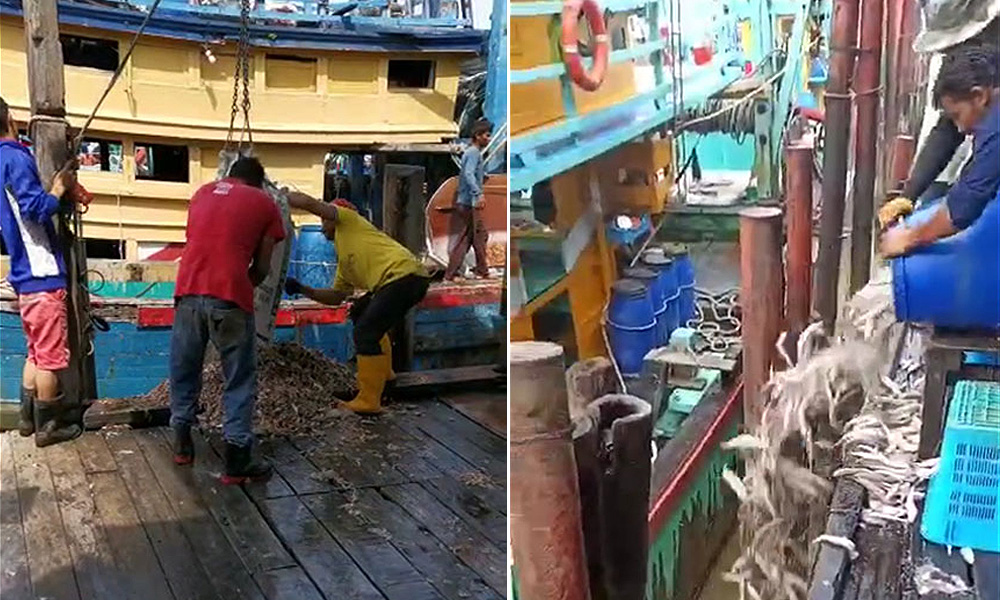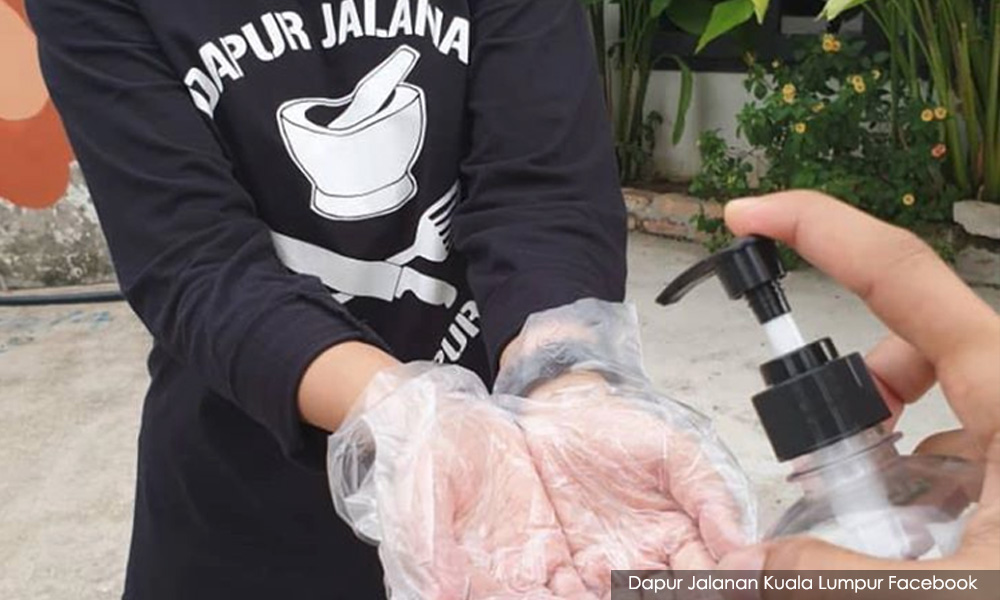
Does the movement control order (MCO) need adjustments to improve it? Were some rules too hastily implemented? Is this new back door government too raw in freshly gained power? Has this led to some debatable decisions?
After all, as Prime Minister Muhyiddin Yassin admitted recently during the stimulus package speech, “We are not perfect but we are doing the best we can.”
Some of the initial MCO decisions were clearly misguided. For instance, the order to close all student hostels and to insist on police permits for interstate travel led to huge crowds at bus and police stations. And as we know, mass close contact is the last thing we need if we want to stop the virus.
We had confusion if face masks were compulsory, with different authorities saying different things. And then, the MCO announcement that only “heads of families” can go out to buy food led to much laughter about clueless men mixing up their halia (ginger) and lengkuas (galangal).
It seems rather obvious that some decisions were knee-jerk reactions which were poorly thought out - which is why some of them had to be reversed. What about other decisions?
As reported in Malaysiakini, farmers in Cameron Highlands have been forced to dump tonnes of vegetables. This was because of restrictions on opening hours and the number of foreign workers at the Kuala Lumpur Wholesale Market (Pasar Borong Selayang) which resulted in a huge bottleneck.
Farmers have been asked to stop deliveries because the end point of the system is jammed up, in a giant case of supply chain “constipation”. The head of the KL Vegetable Wholesalers’ Association pointed out that there are simply not enough people to unload vegetables from lorries.
Now, if these restrictions are meant to prevent crowding and possible virus infection, we can understand. But it was reported that Kuala Lumpur City Hall (DBKL) said stalls at the pasar borong can hire as many local workers as they want, but only two foreign workers are allowed. So, are the sudden new rules designed to provide more jobs for locals? That is laudable - as a longer-term goal - but not during a crisis when vegetable supplies are at stake.
The cutting down of market opening hours from 24 to 16 has worsened the situation (on top of a general drop in consumer demand as people come out less). The report was published on March 25. How long will it take for DBKL to adjust its unsuitable pasar borong rules that are causing deep hardship to farmers and immense wastage of food?
Other government agencies can help out too. Former deputy minister for agriculture Sim Tze Tzin urged the Federal Agricultural Marketing Authority (Fama) to buy up excess vegetables, and Tanah Rata state assemblyman Chiong Yoke Kong suggested that the National Disaster Management Agency (Nadma) coordinate government agencies to distribute the food to the needy.
But so far, there seems to be no action from these government bodies. Why the delay? Surely, it is not because vegetable farmers of Cameron Highlands are mainly from a certain ethnic group? Would the government response be different if it was Kedah padi farmers who were being hard hit?
But looking beyond vegetables and race, the government should understand that the restrictions on markets are also causing fishermen and fruit farmers - of all races - to throw away their produce.

As a layman, I am also puzzled why open air “umbrella” markets have been banned while those inside buildings are allowed? I would have thought that air circulation (and virus dispersion) at roadside vegetable stalls blessed with sunshine would be better than inside a dank market building?
If such roadside stalls are deemed to be too closely packed, perhaps the solution is to ensure they are spaced further apart - after all, we have many empty roads now. Having more open air markets will probably improve the flow of goods and reduce wastage of vegetables, fruits and fish.
In my area of Petaling Jaya, the ban on open air markets at SS2 resulted in crowds of people going to the brick market in Section 17. Again, this is the exact opposite of what is needed to fight the virus.
Police had to disperse the crowds while some keyboard warriors condemned the shoppers, without knowing the deeper causes. It took a few days, after crowd control and social distancing measures were put in place, before the Section 17 market could operate again.
All these examples suggest that the MCO rules on markets need some adjusting to ensure that our food supply keeps moving and that the livelihoods of farmers and fishermen are protected. Or will the situation be made worse with further tightening?
Another puzzling MCO decision was announced by Defence Minister Ismail Sabri on March 28 - he urged NGOs to stop delivering food to the needy.
Instead, he wants them to send food to district Social Welfare Department offices, from where Rela and Malaysia Civil Defence Force personnel will distribute it. The reason, he claimed, was to avoid NGO volunteers from spreading the virus.
However, judging by the languid response of DBKL, Fama and Nadma to the vegetable dumping crisis, will the government be more efficient at giving out aid than NGOs? Why does Ismail want to add extra steps and slow down the process?
In Petaling Jaya, the member of Parliament, as well as state assemblypersons for Kampung Tunku, Kampung Medan and Bukit Gasing (all from Pakatan Harapan incidentally) plus volunteers from groups such as Caremongers, have all organised help to supply groceries for senior citizens or OKU folks - while the federal government has been sitting on its hands since March 18.

As long as these volunteers practise social distancing and wear face masks while distributing food, I don’t see how it is different from Rela doing it. Besides, uniformed personnel may only strike fear and drive away some needy people such as refugees. Ismail’s directive is also against Muhyiddin's call for charity organisations to "rise up" and help Malaysians during the Covid-19 crisis.
So what is the real reason for this strange MCO announcement? We hope it is not because Ismail wants to prevent NGO volunteers from getting any credit for helping the people and to ensure that only the government receives gratitude for food supplies. After all, several years ago some NGOs were barred from helping out with severe floods in Johor as they were not “approved” groups.
We wish that politicians will not play politics during times of crisis. For example, it is said that the Sheraton Move resulted in so much confusion that it allowed the second wave of Covid-19 to hit Malaysia after we had successfully contained the first wave.
Another dubious move came from Federal Territories Minister Annuar Musa, who has terminated all Resident Representative Council (MPP) members of Kuala Lumpur constituencies appointed under the previous Harapan government, just when they are needed to distribute food aid.
Annuar’s excuse was that some MPP members were “not performing” but this was rebutted by Lembah Pantai MP Fahmi Fadzil who pointed out that DBKL and the Federal Territories Ministry itself had given some of them gold or excellent ratings just on Feb 28.
What is Annuar’s intention? To put in people linked to the Perikatan Nasional government? Sure, all politicians need to shore up support through patronage, but surely this crisis is not the time for it?
As the prime minister said in his stimulus speech, “This government may not be the government that you voted for. But I want all of you to know that this government cares for you.”
I want to believe that Muhyiddin was sincere in what he said. If so, I hope he can quickly sort out the problems with our markets which have led to food dumping and damaged livelihoods.
And please, can he tell his people that this is not the time to play politics?
ANDREW SIA is a journalist who prefers teh tarik kau over tepid English tea. - Mkini



No comments:
Post a Comment
Note: Only a member of this blog may post a comment.